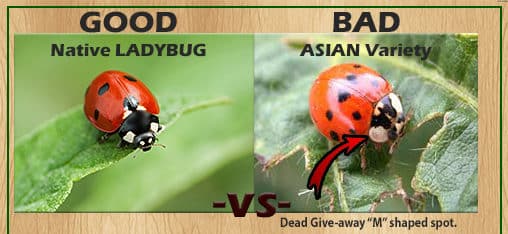Lady Bug Pest Control Services
Most people who’ve never had a ladybug infestation view ladybugs in a favorable way. Who doesn’t get a warm feeling after watching the movie “A Bugs Life”. Ladybugs, sometimes referred to as lady beetles, are actually considered a beneficial insect. They feed heartily on many plant-eating insects such as aphids.

Not so fast! In our area, there are the friendly & beneficial ladybugs and then there is an invasive species called the Asian Ladybug beetle. The Asian Ladybugs tend to gather together in large numbers inside our homes and this is typically when homeowners take action. Oftentimes, it can be difficult to get under control without professional help. Get this the invasive species that is over-powering our native species was introduced by the USDA.
LADYBUG INFESTATIONS
Ladybugs in the house. Several things can attract ladybugs to your home. If your landscaping includes flowering plants, they will likely attract aphids, the primary food source of ladybugs. Certain species of ladybugs also feed on pollen. The pollen helps them store energy to help them through their winter hibernation. Ladybugs must find a warm, comfortable place to hang out during the colder months of the year. If they decide your home is the place to be, they can easily find their way inside through cracks or openings around windows, doors, plumbing, utility lines, etc.
LADYBUG CONTROL MEASURES
If you’ve seen a few and they are not really bothering you, simply leave them alone. They leave as soon as the weather warms. However, you can simply vacuum them up and discard the bag in a sealed trash container outside. If you have a ladybug infestation in your home, other measures will need to be taken. Here are a few things you we can do. First and foremost, We can winterize your home. We can go around the perimeter of your home and make some habitat modification suggestions. Things that could be attracting ladybugs to your yard and seeking refuge in your walls or home. We can also responsibly spray pesticides on the outside of your home to prevent them from establishing a large gathering.
There are some all-natural alternatives that you can try at home. Possibly consider spraying around the cracks and crevices with a natural repellent such as citronella, bay leaves, cloves, or citrus oil. Also, Mums are known to repel ladybugs. The more mums you have by doors and windows the less ladybugs you will have to deal with. If you want to leave it to professionals, simply call us and we will take measures to get rid of them and prevent them from returning.
